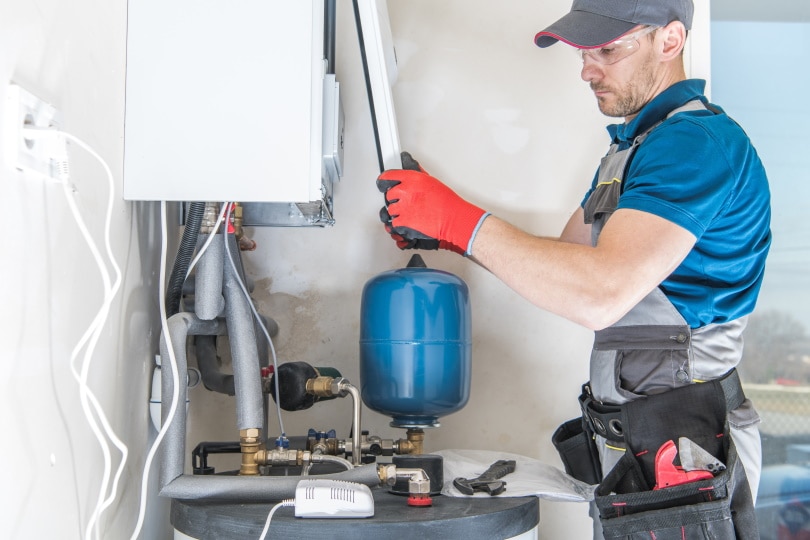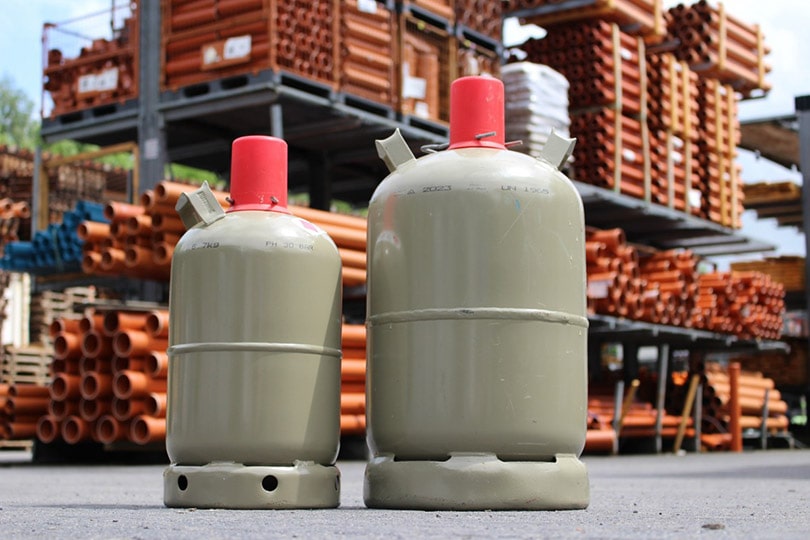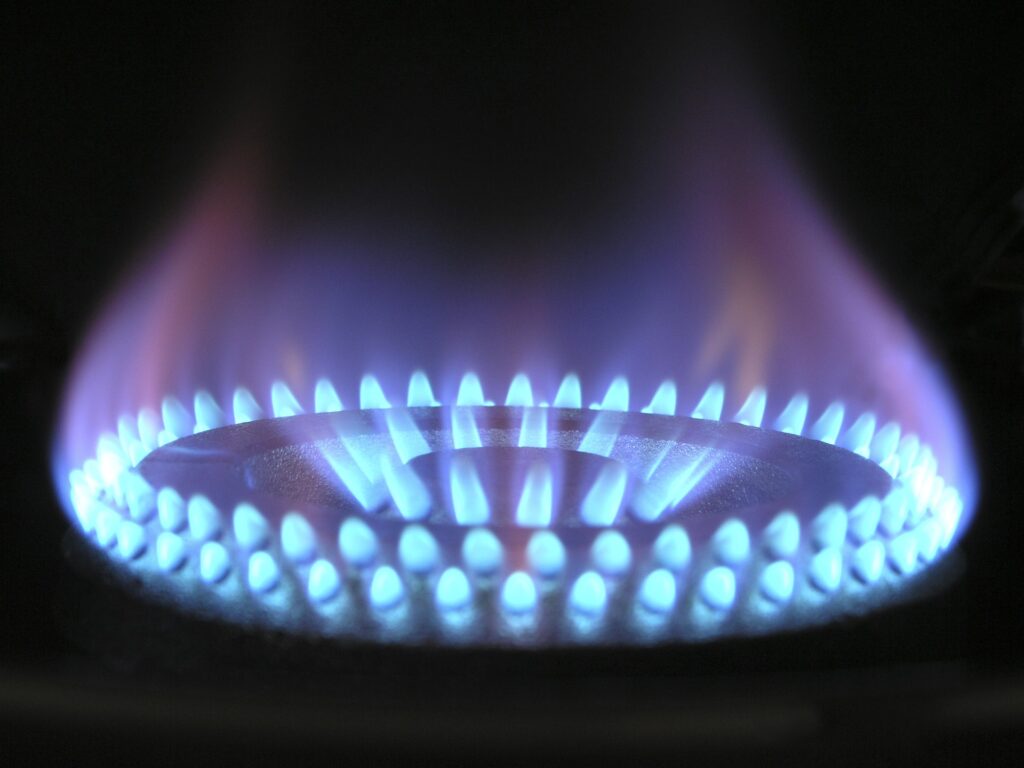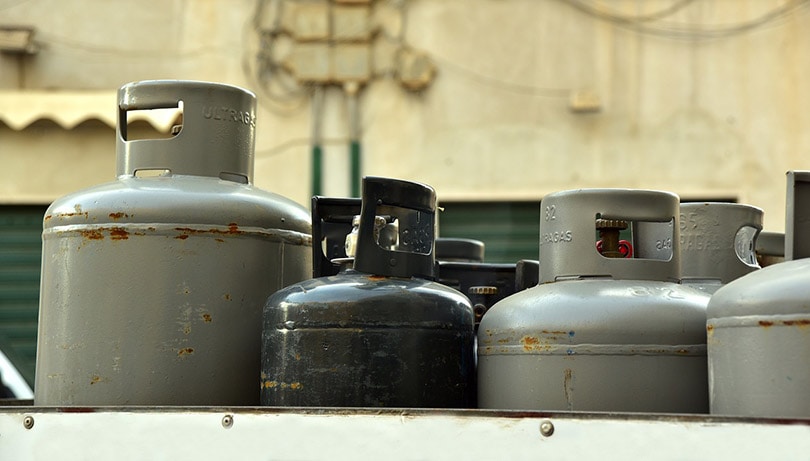What is the Difference Between Propane & Butane? Pros, Cons, & Uses
-
Shea Cummings
- Last updated:

If you’ve ever had a BBQ, gone camping, or had an outdoor heater, you’ve most likely used propane and butane before. Many people use the two names interchangeably because both are used in similar settings.
Each of these gasses is a light hydrocarbon gas called liquefied petroleum gas (LPG). In some applications, the LPG can be a combination of both of these gasses. While propane and butane are chemically similar, they have enough subtle differences that make them perfect for specific uses. One of the main differences between propane and butane is their boiling points.
This article explores each of these gasses and how you can tell the difference. It’ll also include some useful tips on when each of them is used.
Overview of Propane
Propane’s boiling point is -42° C (32° F), which makes it a great gas for outdoor use in colder climates.
Although it’s stored in canisters in liquid form, you can’t smell, see, or taste it when it’s gaseous. This is one reason that it’s dangerous because it’s toxic to breathe. That’s why they add something called mercaptan to give it the characteristic smell you expect from natural gas.
Another huge bonus to propane is how cheap it is. Even with a decline in oil prices, propane remains an affordable fuel, which is why some people convert their old pickups to propane.

Propane for BBQs
You’re probably reading this article because it’s BBQ season, which makes sense. After all, propane is used for a lot of BBQs. This gas is a great choice if you live in a colder climate and you like to grill all year long. In addition, it offers instant lighting, and it reaches its max temperature very quickly.
When to Use Propane
- BBQ
- Heating and cooling
- Water heaters
- Fuel for engines
- Great for lower temperature use outdoors
- Huge reduction in emissions compared to oil
- Large bottle size
- Efficient energy source
- Still a fossil fuel (if you’re trying to be greener)
- Not typically in easy-to-transport containers
Overview of Butane
When crude oil is processed in petrol, kerosene, or diesel oil, butane is extracted in small amounts during the distillation. Because it’s extracted in smaller amounts than when propane is processed, you’ll typically find it being used in smaller applications.
Also, because of their slightly different chemical properties, butane is typically more ideal in small applications like lighters. This is mostly due to their lower boiling point and vapor pressure at room temperature.
The flip side to this low boiling point is that butane becomes less than ideal anytime there is a chance of it being used in lower temperatures. Because it remains in liquid form, and there won’t be enough pressure.

Butane for BBQs
As mentioned above, if you’re planning to BBQ in colder weather, butane is not the right choice. However, if you’re looking for a gas that lights instantly and reaches its maximum temperature almost as quickly, the butane is worth considering. Especially because it burns significantly more efficiently than propane.
When to Use Butane
- Portable heaters
- Camp stoves
- BBQ
- Refrigerant
- Gas-powered torches
- Lighters
- Lower toxicity
- Often cheaper than propane
- Burns more efficiently than propane
- Doesn’t perform as well in the winter
- Can be harder to get
Size of Storage
Propane tanks come in a variety of sizes ranging from 20 pounds (lbs) to 1,000 lbs. The size of the tank increases as the pound goes up. For reference, the 20 lb tank is usually 18″ tall x 12″ in diameter, and the 1,000 lb tank is 5′ wide x 16′ long.
Butane, on the other hand, has a much broader spectrum ranging from tiny 8-ounce containers for backpackers up to dual 33 lb tanks in a residential setting for heating.

Price Comparison
There’s no real concrete answer for price because the price depends on several things, such as the price of crude oil, supply where you are, and the size you’re looking for.
Both propane and butane are available in several sizes of containers. If your only consideration is the best price, butane is typically less expensive. But the flip side is that it can sometimes be harder to get.
When to Use
A quick chart for reference:
| When to Use Propane | When to Use Butane |
| BBQ—year-round | BBQ—no cold weather |
| Heating and cooling | Portable heaters |
| Water heaters | Camp stoves |
| Fuel for engines | Lighters and Torches |
| In-home heating | In-home heating |
Conclusion
There is no one-size-fits-all answer for which gas you should be using. They are so similar, yet their differences make them ideal for certain situations. Whether you’re looking for alternative fuel for your vehicle or you just want to grill some burgers on the BBQ, take a look at the ideal gas for each.
- https://www.calor.co.uk/news-and-views/the-difference-between-butane-and-propane#:~:text=The%20key%20difference%20between%20propane,as%20effectively%20in%20colder%20climates.
- https://www.adamsgas.co.uk/2020/06/17/propane-vs-butane-which-for-bbq/
- https://www.wlpga.org/about-lpg/what-is-lpg/
- https://www.gasteconline.com/blog/understanding-propane-tank-dimensions/
Featured Image Credit: Virrage Images, Shutterstock
Contents
